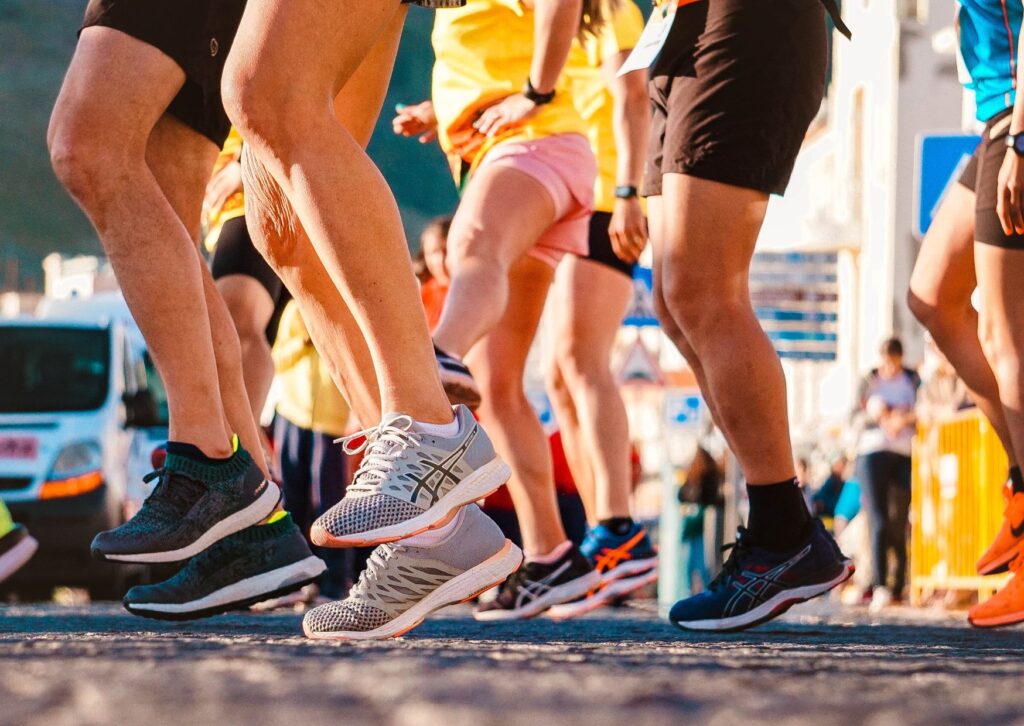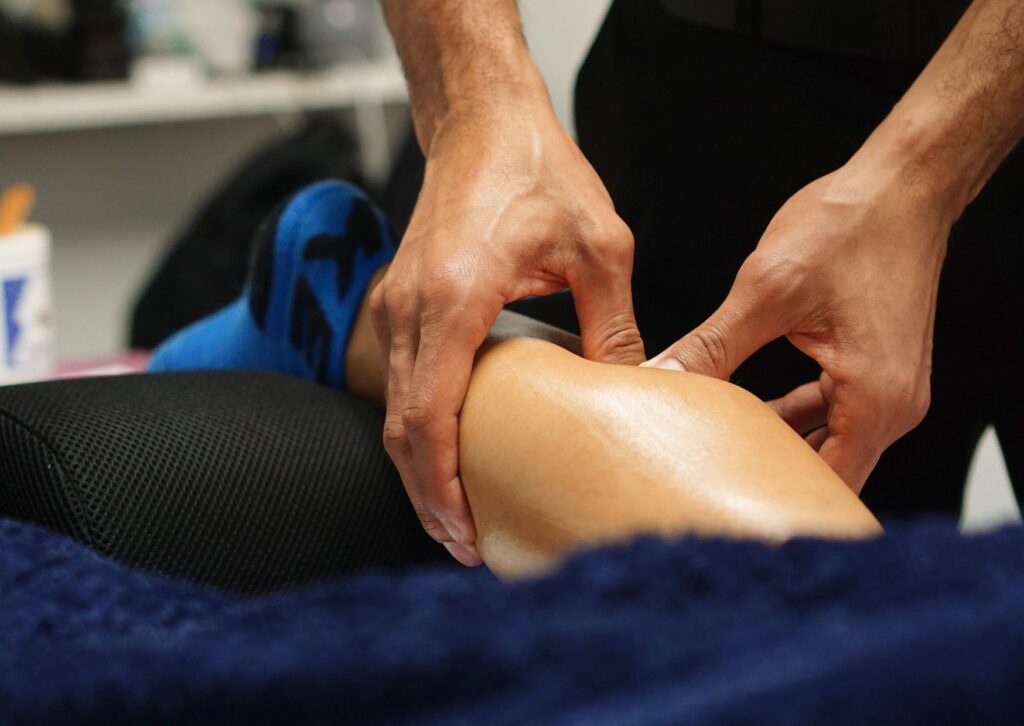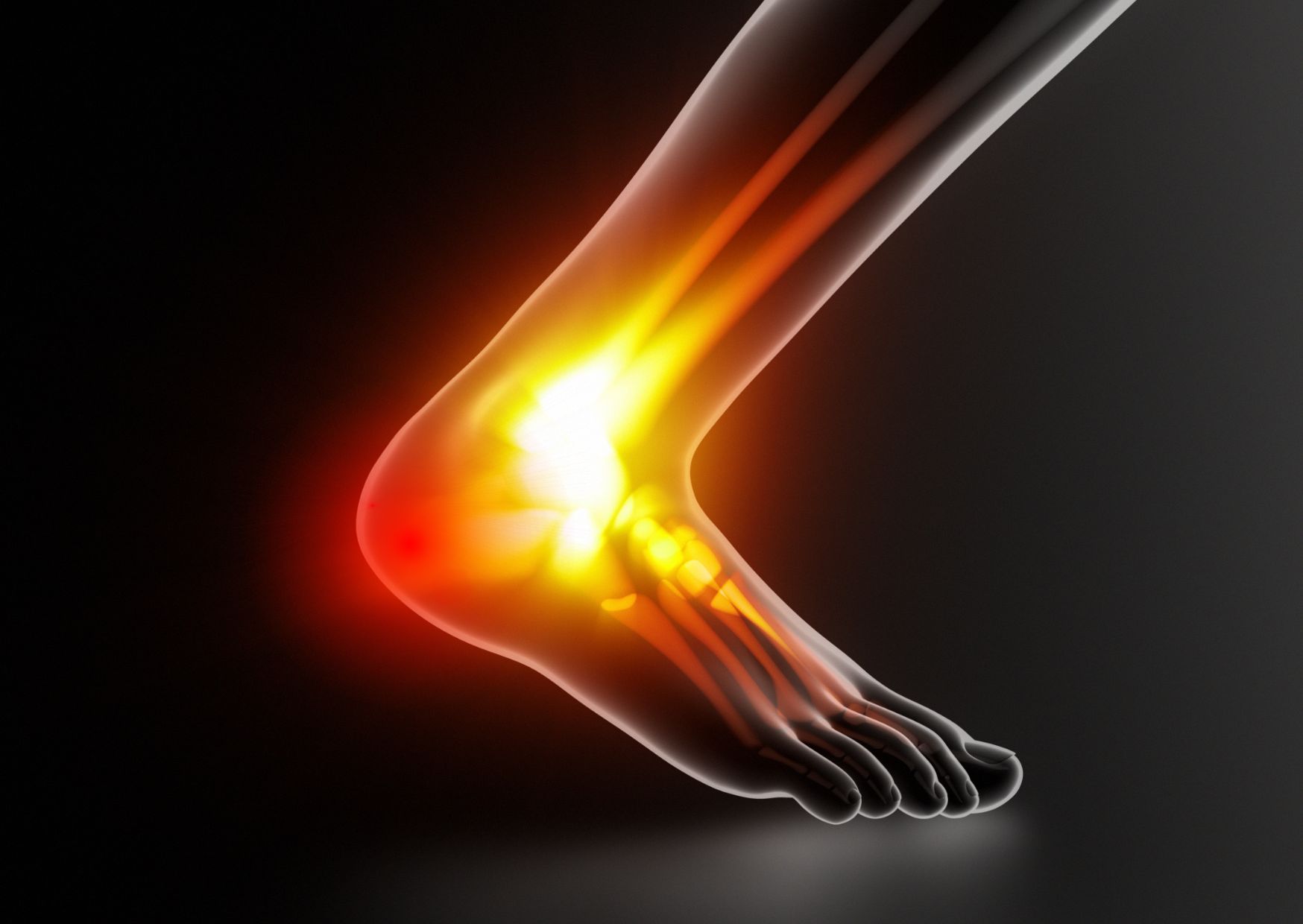Heel Pain After Running? Try This!
Why You May Be Getting Heel Pain After Running
Heel pain after running is a common problem among runners.
This type of pain is often caused by a condition called plantar fasciitis, sometimes referred to as “Runners heel”.
This is an inflammation of the tissue that connects the heel bone to the toes.
Plantar fasciitis can be caused by a number of factors, including overuse, improper footwear, and poor running technique.
How to Prevent Heel Pain After Running?
If you experience heel pain after running, it’s important to take steps to treat and prevent the condition.
The first step is to rest and avoid activities that cause pain.
This will allow the inflammation to subside and the tissue to heal. You can also try applying ice to the affected area for 15-20 minutes at a time, several times a day. This will help reduce swelling and pain.
Wearing The Correct Footwear For Your Heel Pain?
Another important step in treating heel pain is to wear proper footwear.
Running shoes that are worn out or don’t provide enough support can contribute to plantar fasciitis.
Make sure to replace your running shoes every 300-500 miles, or when they start to show signs of wear.
You may also want to consider using orthotic inserts, which can provide additional support for the arch of your foot and help to alleviate pain.
Although it’s best to speak to a foot specialist before getting orthotics.

Additional Ways To Reduce Heel Pain After Running?
In addition to rest and proper footwear, stretching can also be helpful in treating and preventing heel pain.
Stretching the muscles in the foot and calf can help to improve flexibility and reduce strain on the plantar fascia.
One simple stretch that you can try is to place your hands against a wall and extend one leg behind you, keeping your heel on the ground.
Slowly lean forward until you feel a stretch in your calf and foot.
Hold this stretch for 30 seconds, then repeat with the other leg.
You can also reduce the strain on your calf with a sports massage
Sports massage can help to reduce the tightness and tension of the muscles around the heel, which can contribute to reducing your heel pain.

How Long Does It Take For Runners Heel Pain To Go?
The amount of time it takes for runners heel pain to go can vary depending on several factors, including the severity of the condition and the treatment methods used.
In general, mild cases of runners heel pain may improve within a few weeks with rest, stretching, and proper footwear.
More severe cases may take several months to heal, and in some cases, the condition may persist for a year or more.
Will A Different Running Technique Help With My Heel Pain?
Running techniques can be important when it comes to reducing heel pain.
Overstriding, which is when your foot lands too far in front of your body, can put excess strain on the plantar fascia.
To avoid overstriding, focus on landing on your midfoot or forefoot instead of your heel.
This will help distribute the impact of running more evenly and reduce the risk of plantar fasciitis.

Should I Run With Heel Pain?
It’s generally not recommended to run with heel pain.
Running with plantar fasciitis can cause the condition to worsen and can lead to additional pain and discomfort.
If you still want to exercise, it’s best to take up non-impact exercise, such as swimming or weight training.
Once the pain has subsided, you can start to slowly introduce running back into your routine.
Be sure to start with short distances and gradually increase your mileage over time.
This will give your body time to adjust and reduce the risk of re-injury which is important for your physical wellbeing.
If you experience heel pain, be sure to take steps to address the problem and avoid activities that cause pain.
It’s always best to speak to a professional if you’re experiencing heel pain after running.
Author –
Tyler Lowe – Health & Wellbeing Speaker
BSc Sport & Exercise Rehabilitation


